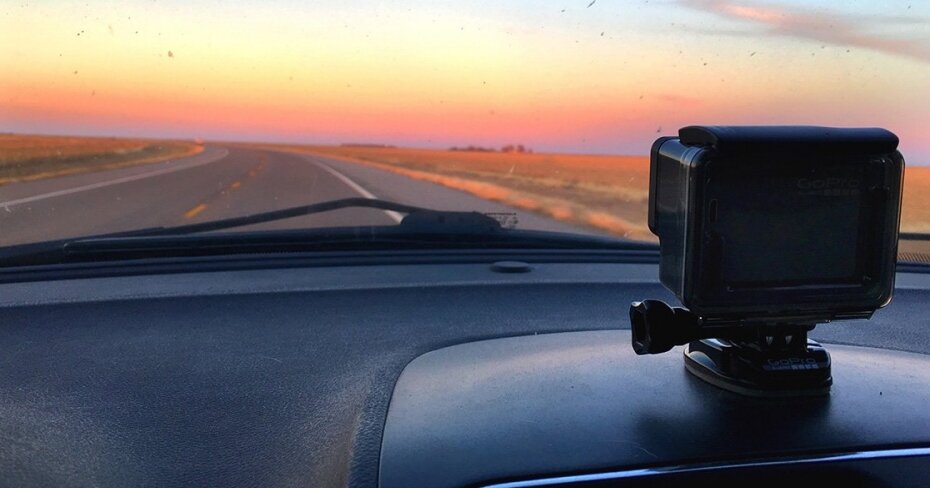Should you get a dash cam in your car?
By: Maureen Genore on June 21, 2017
Recently I was getting a ride home from a friend when I noticed she had a small black box mounted on the dash in her car. I thought it was a GPS at first, but when I realized it had no screen, I asked her about it.
“Oh, that? It’s a dash cam,” she explained. “My dad put it in my car one day a few months ago when I was visiting my parents. He has one, and it’s come in handy for him.”
She went on to tell me how her dad was in his car, waiting at a traffic light when suddenly, a cyclist stopped in front of him and purposely fell over on his bike.
“He blamed it on my dad, saying he hit him, and demanded money for his ‘injuries’,” my friend explained. “As soon as my dad pointed out that he had a dash cam, the guy on the bike took off pretty quick.”
If having a dash cam in your car could so easily help prevent situations such as this one from turning ugly, in addition to being so useful in accidents, shouldn’t more people use them?
A dash cam, or dashboard camera, is a recording device used inside a vehicle that records video through the windshield. Typically, the camera will start recording once the vehicle is turned on and stop when the vehicle is turned off. Video will record on a continuous loop, meaning when you reach your storage limit, the video will overwrite the oldest footage first. Some cameras may come with additional features, like a GPS that can record your speed and exact location, or cameras that stay in standby mode and only turn on if there is an impact.
So let’s talk about the reasons why you might — or might not — install one in your vehicle.
They might help you avoid an insurance headache
While having a dash cam won’t reduce your insurance premiums in Canada (at least not yet), having one could help you if you ever need to make an insurance claim.
Dash cam footage can be very helpful in determining who was at fault in an accident, a commonly disputed issue. A potential issue with this, however, is that most insurance companies do not have specific policies around whether or not they take video footage into account when processing a claim. While photos are encouraged (and sometimes mandatory), many companies still have somewhat of a grey area around video. Likely, it will depend on the particular person reviewing your claim and whether or not they deem the video in question to be helpful.
It’s also important to note that because the camera would only be pointed in one direction, it’s possible that it might show that something did happen, while not catching why or how.
They could also be helpful for law enforcement and in court
Insurance aside, dash cams can be invaluable in providing law enforcement and the courts with clear proof about what really happened in a given situation. For example, in disputes where it is one person’s word versus another — such as a road rage incident or a situation where a cyclist or pedestrian fakes an accident — dash cams could tell the truth.
The same can be said for identifying the driver or drivers in a hit and run situation. Unfortunately, accidents where drivers flee the scene happen all too often and having footage of the incident can be crucial in identifying these drivers.
Installing a dash cam might also be desirable for drivers that are worried about theft or vandalism.
Other concerns
When it comes to the legalities of dash cams, you shouldn’t have much to worry about in Canada. Because what you are recording is in public, there are no legal issues in doing so. If you were to use a camera that recorded audio as well as video, however, you would need to inform passengers in your car that you were doing so.
Another concern is whether or not a dash cam adds a distraction for the driver. In theory, a dash camera should be a device that you would set and forget, though likely that won’t always be the case for everyone.
Are you still trying to decide whether or not you should install a dash cam? With dash cams ranging from around $50 for an entry-level model to close to $500 for a top-end one with a ton of features, they’re proving to be a relatively inexpensive way to have more peace of mind.
And who knows? Maybe soon they’ll even help you get a break on your auto insurance.


432e.jpg)